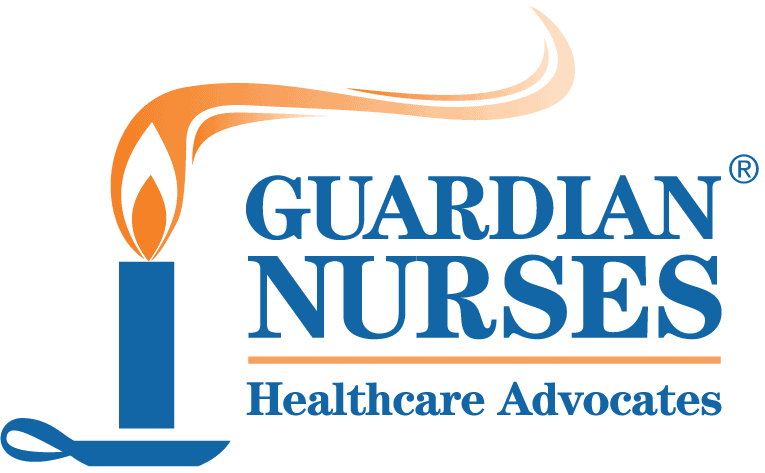HAPPY NEW YEAR!!!
Though 2021 has had a rough start in the U.S., with record numbers of people contracting and dying from COVID, at least 2020 is over and there is a vaccine at the end of the tunnel!
But, with the extraordinary numbers of patients requiring hospitalization, patients, families, nurses, physicians, and other members of the hospital team are feeling extraordinary stress. Not a recipe for good communication.
This past Friday, we received a call from the mother of a 36 year old woman who had been hospitalized, critically ill, since January 3rd. The mother reported that she was spending HOURS on the phone trying to get information about her daughter. She reported an endless loop of being transferred and long hold times with never the right person picking up. Then, on Friday, she received a call from her daughter’s nurse saying that her daughter had “taken a turn for the worse and was being moved to ICU.” Not permitted to visit because of COVID restrictions and not able to get through to anyone, Mom was frightened and frustrated and at wit’s end.
Scenarios like this are playing out all over the healthcare system as visitors are denied entry and any available nurses are spending uninterrupted hours in patients’ rooms wrapped in gowns, gloves, masks and face shields.
Even before COVID19 wreaked havoc in our healthcare system, communication has always been one of the top three challenges for families and patients. But during the crush of these last few months, it is an absolute nightmare for families.
We hope you never need the tips in this issue of The Flame, but if you do, we hope that they help get you the information you deserve.
To say that healthcare workers in U.S. hospitals have been stressed because of the impact of COVID19 is too polite. The full impact of what they’ve gone through is yet to be known because, until this pandemic is under control (and it is far from that), nurses, doctors, respiratory therapists, housekeepers, and others are still working exhaustively to care for every patient, to save every life they can.
That was true in April and is true, now, in January. What is also true is that there is less communication to families. Prior to COVID, families could visit their loved one and often get an in-person update from nurses. With facilities on tight restrictions, and patients in ICU not having access to phones or perhaps the ability to talk, those updates have to occur by phone with a nurse or doctor. Here are two scenarios. If you need to call to get information on your loved one, here are some tips.
Your Loved One is in ICU and Cannot Talk to You
- Visit the hospital website for information on their COVID19 visitation policy. It’s likely that no visitors are allowed but do your homework.
- There may have to be a designated ‘point person’ to be the one who speaks on behalf of the family.
- Try not to call the unit between 6:30 and 7:30AM or PM. This is typically change of shift when nurses are giving report to each other and they are less likely to be able to come to the phone.
- Before you call, make a list of questions that you’d like to ask. Have paper and pen at the ready to take notes and jot down names and phone numbers.
- If you don’t have the direct phone number to the ICU nurses’ station, call the main hospital number and ask to be connected to the nurses’ station in ICU. It will help to have the room number, too, but not critical.
- Depending on how busy the unit is when you call, it may take a while for someone to answer. Remember, it is the ICU. Introduce yourself to the person answering and explain your relationship to the patient. “Hi, this is Nancy Drew, my daughter is Diane Drew, in Room 15. If she’s available, I’d like to speak with her nurse.“
- If you are told that the nurse is not available, which often is true, ask to speak with the ICU Charge Nurse. This nurse is overseeing the unit for the shift and typically does not have a patient assignment which means they’re more available to talk to you.
- When the charge nurse picks up, explain who you are, your relationship to the patient and why you’re calling. Some hospitals require a code or password before they will share any clinical information. Make sure you have that before you call.
- Ask for a clinical update. If the charge nurse can’t answer specific questions, she will be able to speak with the nurse who’s caring for your loved one and get back on the phone to tell you the answer.
- Don’t forget to ask about their routine communication protocol, when can you expect a call, is there an IPad in the unit that can be used to Facetime with your loved one (if they are sedated, it may not be possible), ask when that can happen. If you don’t have an IPhone, check into an app called Duo for Android phones.
- While a frightening topic to bring up, if you can, ask about the hospital’s visitation policy at end of life. Even with COVID restrictions, if a patient is dying, some visitors may be allowed. It will help to be prepared.
Your Loved One is Admitted or Transferred to a Medical Floor or a Rehab Facility
- When your loved one is in the hospital and has their cell phone and can talk to you, great. But if you still want to talk to their nurse to get a clinical update, it still may be challenging.
- If your loved one doesn’t have their cell phone, you can still try calling their room by calling the main hospital number and asking to be transferred into their room.
- If you do get transferred, and no one answers, don’t despair. There may not be a phone in the room, it may be broken, or if it is there and working, it may not be within reach. The patient may be sitting out of bed in the chair and the phone is across the room. Or maybe they’re having a test and are not in the room.
- Call back to the main hospital number and ask to be transferred to the nurses’ station. Ask the unit clerk, or whoever answers the phone, “Can you go into Room xxx and be sure she can reach the phone?”
- Don’t assume that your loved one will know the details you may want to know. If you want to get an update on their clinical status, call the nurses’ station and ask for their nurse.
If you are still unable to get the information you need by trying these tips, don’t be afraid to call the main hospital number — at any time, 24/7 — and asking the Operator to page the House Supervisor. This is usually a nursing supervisor whose job it is to manage the ‘house.’ We hope it doesn’t come to that, but explain your frustration and ask for help.

